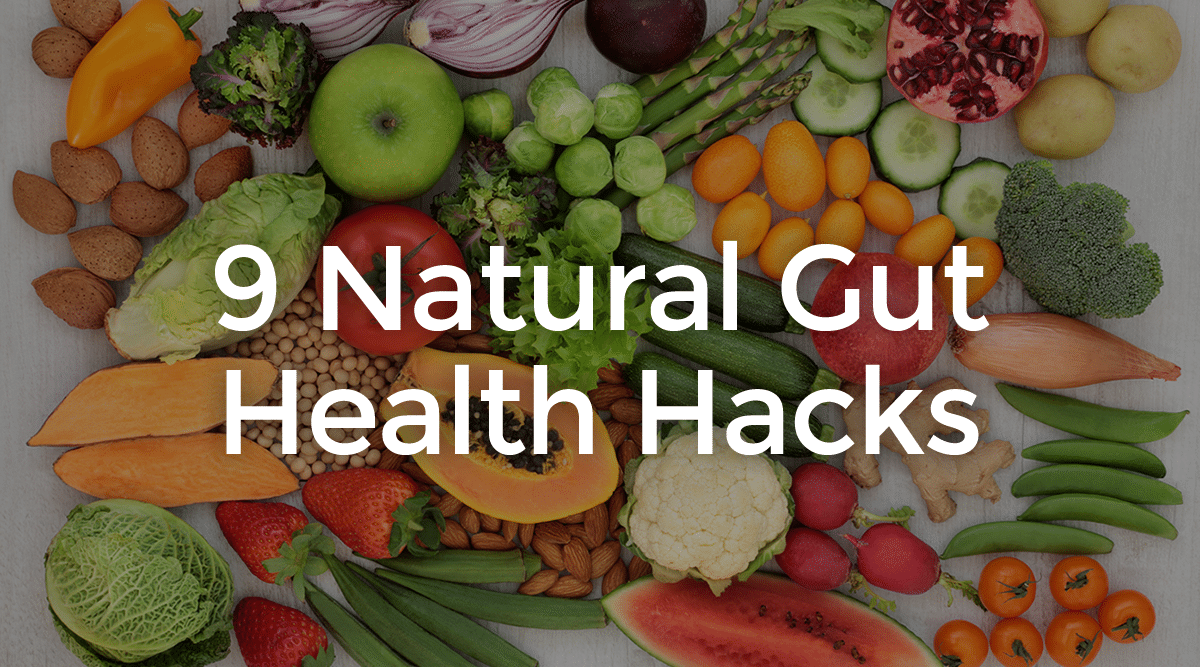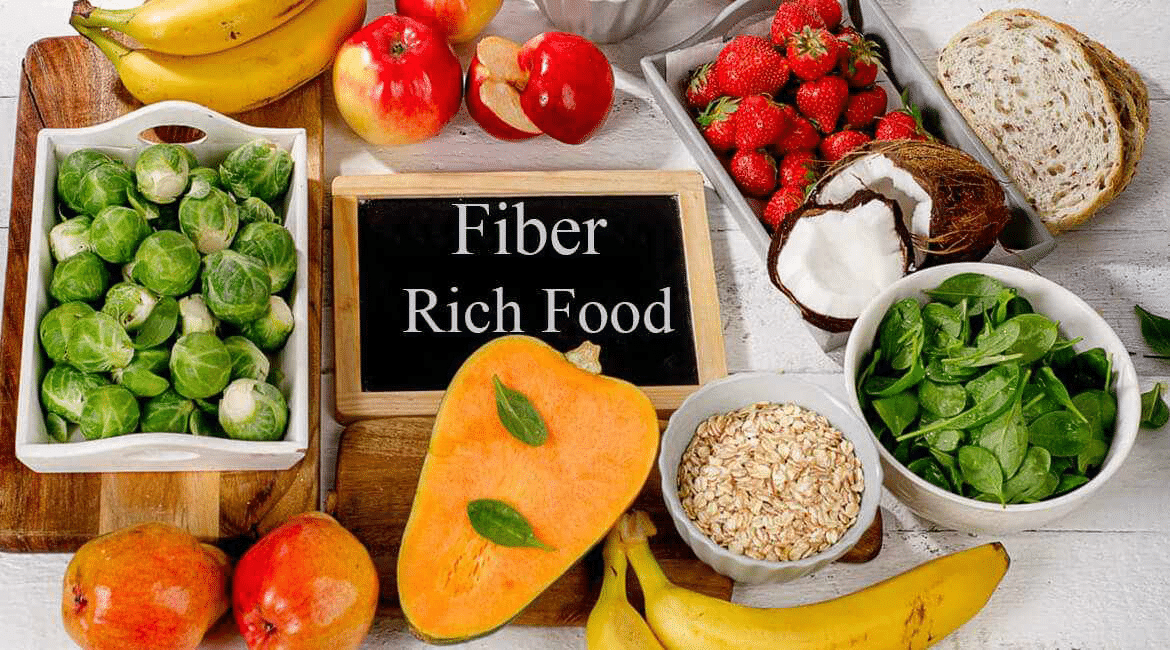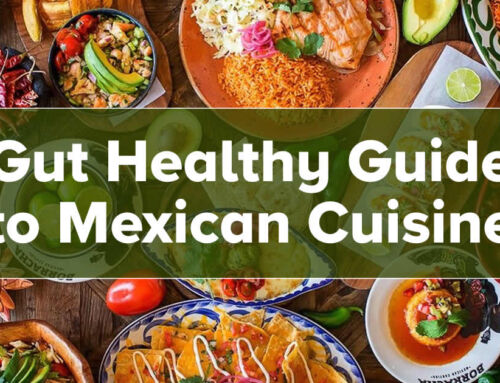An unhealthy gut can leave you wasting time in the bathroom – and really, who has time to waste? We’ve all experienced it before – that rumbling sound coming from your stomach when the room is completely silent and that bloated uneasy feeling. That’s something we all want to avoid. I battled this myself for many years as I tried different diet and life style changes trying to find that balance for my system. I attributed it to getting older – which I was – but that didn’t mean I was ready to feel that way. These experiences led me to want to share hacks to improve gut health.
Not only can an unhealthy gut cause unwanted digestive issues, but it also has an effect on certain cancers, autoimmune diseases, inflammatory bowel diseases, obesity, and more.
Your gastrointestinal tract is the gateway from the outer world to your inner body. Things such as your diet have a big impact on its health. It’s where you get your vital nutrients you need to function. And when this is in shambles and you’re putting harmful food in your body, it can cause mayhem. As I played with my diet and lifestyle over the years – and am still playing with it – I am finding the balance that works for my system. And that’s the goal… balance.
Fortunately, the opposite can happen when you have a healthy gut. It can do wonders for your gastrointestinal issues and promote better overall health.
You probably know probiotics and prebiotic foods can have a positive impact on your gut health. But acquiring other healthy lifestyle habits can have an even bigger effect on your overall health.
9 Hacks to Improve Gut Health Naturally
Feeding your gut the things it needs and requires for proper digestion and absorption is important. Without these essentials, your gut has trouble absorbing and digesting necessary nutrients. I wanted to share these 9 hacks to help you improve your gut health, promote better digestion and boost your metabolism:
1. Drink 16 Ounces of Water When You Wake Up
Drinking water is an essential part of the human diet and we would die without it. Your body is made up of 50-60% of water so without this vital nutrient, all things would go haywire. Your digestive tract would greatly be affected because it needs water for proper digestion, absorption of nutrients and elimination of food and waste.
Developing a morning routine by drinking 8 ounces of water when you wake up helps stimulate your metabolism. This lets your body know it’s awake – revving your engine for the day.
By drinking the second 8-ounce glass, you will help boost your metabolism even more – up to 30%. This second glass of water helps replenish your system since it just woke from a fast of water while you were sleeping. It promotes detoxification by flushing your organs and glands from toxins it accumulated overnight – improving gut health naturally. Most of us wake up relatively dehydrated – fix that by adding the water back.
2. Shop The Perimeter Of Your Grocery Store
Food is important – not only because it tastes so good, but because food equals fuel. And the “real food” or fuel is located in the perimeter of grocery stores. This part of the store is filled with vegetables, fruits, dairy, meats, and fish, which are healthier options that give you more energy.
Steer your shopping cart clear from the center aisles because these are where boxed, processed foods are typically located. These foods are infamous for containing harmful toxins, which can impact your gut health – and not in a good way.
3. Eat Fruit By Itself For Better Digestion – Skip The Carbs
Fruits contain so many beneficial compounds for your digestive tract and overall health. So, eating the fruit by itself helps your body absorb all of its available nutrients. Fruit should – and wants to – be digested first so your body can reap the benefits.
So, if you combine it with something like carbohydrates such as grains or potatoes, you create competition. Now, your fruit has to fight to be digested first because carbohydrates and fruits have similar digestion rates. The carbohydrates can beat the fruit to the digestive finish line and the fruit must wait – putrefying and fermenting. This creates gas, bloating, and kills good bacteria while it does this.
Proteins and fats are okay to eat with fruit because they have a longer digestive rate.
4. Chew, Eat, Bite x 10
Chewing is a signal to our body to produce more enzymes. And these enzymes aid in proper digestion by helping break down food and deliver it where it needs to go. By chewing more
slowly you give your body a chance to produce enzymes, which kickstarts the proper
digestion of the nutrients in food. Also, chewing more slows down how fast you eat (most of us, myself included, still eat too fast). When we don’t slow down to chew and eat to fast we typically eat too much because we are shoving more food in faster than our body can let us know we are full. Slow down, and you will eat less.
5. Try Stevia As a Natural Sugar Substitute
Refined sugar is a danger to your gut health. It can promote an imbalance of good bacteria to bad bacteria in your gut which can cause gut dysbiosis. Gut dysbiosis can lead to the following health issues:
- Diabetes
- Obesity
- Inflammatory bowel diseases
- Colon cancer
- Small intestinal bacterial overgrowth
- Leaky gut syndrome
- Food sensitivities
This type of sugar has also been shown to cause inflammation in the body which is the precursor for many diseases. If you need to add sweetness to coffee or other foods, stevia is my go-to natural sugar substitute – and zero calories!
6. Drink Apple Cider Vinegar Before Meals
Maintaining an appropriate balance of acid in your stomach helps with digesting food. Acid also acts as a barrier to any foreign microorganisms. Low stomach acid has been linked to increased Helicobacter pylori infections.
Apple cider vinegar will help to naturally stimulate the body to produce the hydrochloric acid needed in the stomach. This helps fight off any potential invading pathogens entering your stomach, which can lead to bad gut health.
7. Eat Fiber-Rich Foods
Dietary fiber is important for your gut health. These carbohydrate molecules are able to resist digestion in the small intestine and feed your healthy bacteria so they can improve your gut health naturally.
Fiber-rich foods include:
- Whole wheat
- Bananas
- Beans
- Berries
- Green vegetables
- Prunes
- Nuts
And studies show including more dietary fiber in your diet can reduce the risk of chronic diseases such as:
- Cardiovascular disease
- Diabetes
- Cancer
- Inflammatory bowel disease
8. Avoid Food Sensitivities
Certain foods can create sensitivity to your gut such as dairy, gluten, and certain carbohydrates. Some people lack an enzyme to properly digest lactose in dairy, leaving them with uncomfortable gastrointestinal issues. This can also lead to gut inflammation causing mayhem for your overall health.
Gluten and certain carbohydrates are also hard to digest for some people. Fermentation from your gut bacteria of these foods can leave you with gas, bloating, diarrhea, and constipation.
Avoiding foods your body is sensitive to is important for maintaining gut health. The main ones I see issues with are lactose, fructose, sucrose and gluten. The first three can be tested for with simple breath tests at my office. If you have played with your diet with no success, it’s worth getting these tests done to see if we can find more specific triggers. Gluten issues, like celiac disease, can be tested for with blood work and elimination diets. I focus a lot with my patients on these types of complex carbs and gluten and there is typically a trigger in there somewhere that we can improve on.
9. Stay Active
The saying “a body in motion stays in motion” can never be more true for your gut health. To improve gut health naturally, exercising is an important lifestyle habit to acquire. Exercise keeps your gut motility moving, while also benefiting your overall health – killing two birds with one stone. There are many reasons to exercise, but improving you gastrointestinal symptoms is also one of them.
Gastroenterologist in The San Antonio, TX Area
In my opinion, improving your gut health can be just as important as improving your heart health. Your gut tends to be called “the forgotten organ,” which is unfortunate because it’s linked to heart health, brain health, immune health, and more. This is why the importance of gut health is starting to emerge with more recognition.
This list is not meant to be inclusive of all the ways we can implement “gut hacks” to improve our health. My intent was to provide a few things that I recommend to my patients and get you thinking about ways you can better improve your health. The goal is to try something. There is not a “magic pill” for the symptoms of gas/bloat, diarrhea, constipation and poor gut health, but by trying a combination of different things, all these little things you are doing start to add up and make a difference. By adopting enough healthy lifestyle changes, slowly, things do get better and tend to stay that way longer. If you have other hacks, please consider sharing them with my Facebook audience. I’m a big fan of learning from one another.
If you’re in the San Antonia, TX area looking for a gastroenterologist to help you improve your gut health, please click this link to request an appointment or call (210) 615- 8308.






